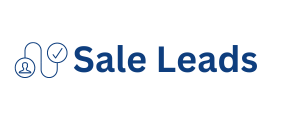The essence of digital advertising in recent years has been in personalization. Consumers expect ads that are relevant to their interests and not that companies send them content in bulk and with little importance. At the same time, however, privacy and data management concerns have been growing. Citizens do not want companies to have access to so much information about them and the regulations that have been approved over the last few years have been limiting the access that large companies have to information.
Faced with all this, there are the positions that the companies themselves occupy. Advertisers are very responsive to data usage and see it as a powerful asset. The information allows them to segment the campaigns in a very tight way. Rather than launching generalist ads or those that hope to reach a specific consumer niche, the ads are delivering messages that are ‘for you’. They start from what you have seen on the Lithuania Mobile Database internet, what you have bought and from other data sources that accurately and specifically outline what interests you. But that publicity is in jeopardy. After reigning for years in the online advertising market, it is now facing problems, tensions and business decisions that put it at risk. The European Union, for example, is working against microtargeting , to reduce what companies can do in terms of segmentation. The process was still in its early stages last October, but it clearly showed that the EU wants to make internet advertising less invasive.
Even so, the most immediate blow will be the death of the cookies, which is looming and which will change everything completely. The disappearance of cookies has been in the making for a long time and has had different players and peak moments. Google’s decisions have become, yes, the final Brother Cell Phone List shock that will impact its use and its potential when segmenting advertising. Chrome, Google’s browser, announced, with enough time to give the industry room for maneuver, that it would block cookies by default from 2022. The advertising industry has to work to find alternatives, but it seems increasingly clear that the solution will be in a completely different online advertising. That will mean the death of personalized advertising as we know it.
Many industry players expected that the death of the cookie would imply the boom in alternative ID systems that would continue to identify consumers and follow their browsing patterns to determine profiles without using that technology. It is possible to do it: companies like Facebook already do it, in fact. However, Google’s latest decision seems to make dominance of those technologies unlikely. As they point out in Campaign , Google’s latest decision in online advertising has blown away hopes that this would be what was coming. Google has made it clear that it will not create alternative systems that achieve the same as cookies.
And that’s where the key point comes in: what exactly has Google just announced and why can it completely change how the online advertising market operates? Google has just revealed that, when cookies disappear, it will no longer sell targeted advertising based on navigation. That is, it will not focus on the consumer in a personalized way, in order to respect more their privacy. The idea is to launch a kind of group advertising, for which it will use a new tool called Privacy Sandbox. Advertisers will be able to reach like-minded consumer groups, but they will not be able to go to the specifics and the concrete.

